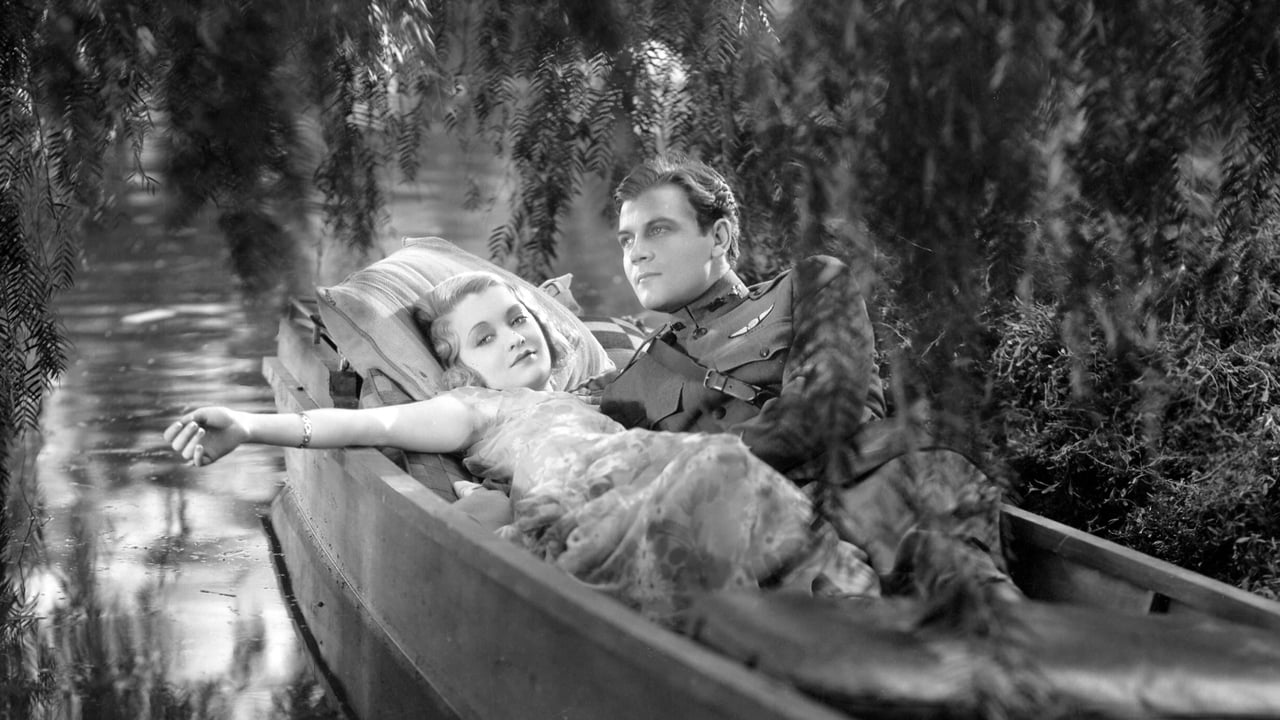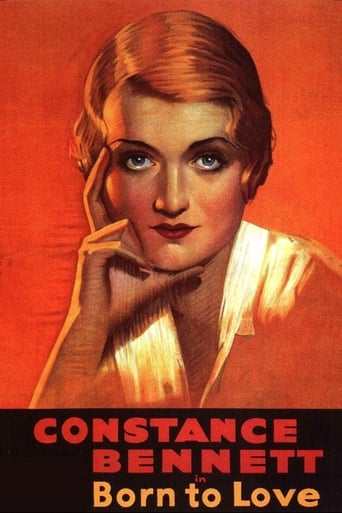

This high-power weeper is notable for its photography. Made shortly after sound arrived in movies, Born to Love has some interesting images courtesy of cinematographer John Mescall. Rapid pullbacks and moving close-ups often look like the camera was mounted on a square-wheeled dolly. When done at a less frantic pace, they're much smoother and easier on our eyes. Mescall's stationary camera images of London's celebration at the end of World War One , complete with an example of his tilted camera style, are the best images in the movie. Film buffs of pre-code talkies will get something out of this very dreary story.
... View MoreAnother one of the early films made by Bennett and McCrae. Although SHE gets top billing in this one, since she had been working in silents for a few years already. McCrae looks so young, thin, and energetic, as this is one of his earlier, credited roles. It starts as soldier Barry (McCrae) meets nurse Doris (Bennett) during WW I in Britain. They hit it off... they have it off, and soldier Barry goes off to war. This was made just a few years before they enforced any "decency code", so things are made pretty clear without resorting to too much innuendo. The story starts out quite romantic, but it IS wartime, and when Barry is presumed dead, Doris marries another soldier (Paul Cavanagh). When Barry returns, the trouble begins, partly due to the complicated rules for divorce to be granted at the time. and did you SEE the dress Constance was wearing when she is called to the phone and finds out he is still alive?? wacky. Doris lives on her own after the divorce, and visits the baby, but won't move in with Barry. Then the film takes quite a left turn; Doris sees the baby is deceased, and goes over the edge. She heads home to find that Barry is there waiting for her, but certainly a bittersweet ending. Quite a shocker, right at the end of the story. On the plus side, she's back with her original love. According to wikipedia, director Paul Stein had been born in Austria, moved to Hollywood, and later became a Brit citizen in 1938. He also directed "Born to Love", which also shows now and then on TCM. It's pretty good, for an early talkie, but has its ups and downs. More interesting as an early work for McCrae and Bennett.
... View MoreIn BORN TO LOVE, Constance Bennett (Doris) and Joel McRea (Barry) are lovers who meet during the last weeks of the First World War. London is portrayed as a city in imminent danger of bombs from aircraft. They meet and predictably fall in love despite the chaos and confusion that surround them. There is an interesting scene in which they make love, one that is prudishly suggested off screen, yet one that in just a few years would have been banned by Hollywood as overtly salacious. The plot is the contrived package of Barry's reported death, forcing Doris to marry another. The second half of the film is less melodramatic and more of an acerbic commentary on the harshness of an English divorce system that allows a rich and titled husband to retain custody of a child over the wishes of a impecunious mother. There is an encoded ideology in the film that does not hide the fact that poor women who marry titled men can expect no mercy or kindness from a patriarchal legal system. BORN TO LOVE nevertheless carries the audience to a satisfying if not predictable conclusion of the need for true love to triumph over formidable societal obstacles.
... View MoreBorn to Love (1931) is rather silly but nevertheless is a good example of a candid treatment of divorce law before the Production Code of 1935 put a stop to serious treatment of divorce or of pre-marital sexuality. Stuck in a loveless marriage to Wilfred, a haughty English aristocrat, Doris causes Wilfred to believe she has committed adultery. The consequences to her are catastrophic.The plot is creaky and relies on numerous contrivances. The acting is highly forgettable. Nevertheless, the issues of fault-based divorce are important ones. The movie also concerns the conflict between marriage as an institution for love and fulfillment as opposed to a unemotional union designed for the mutual support of spouses and children. Needless to say, divorce law in the old days was much better adapted to the latter vision of marriage than the former.
... View More